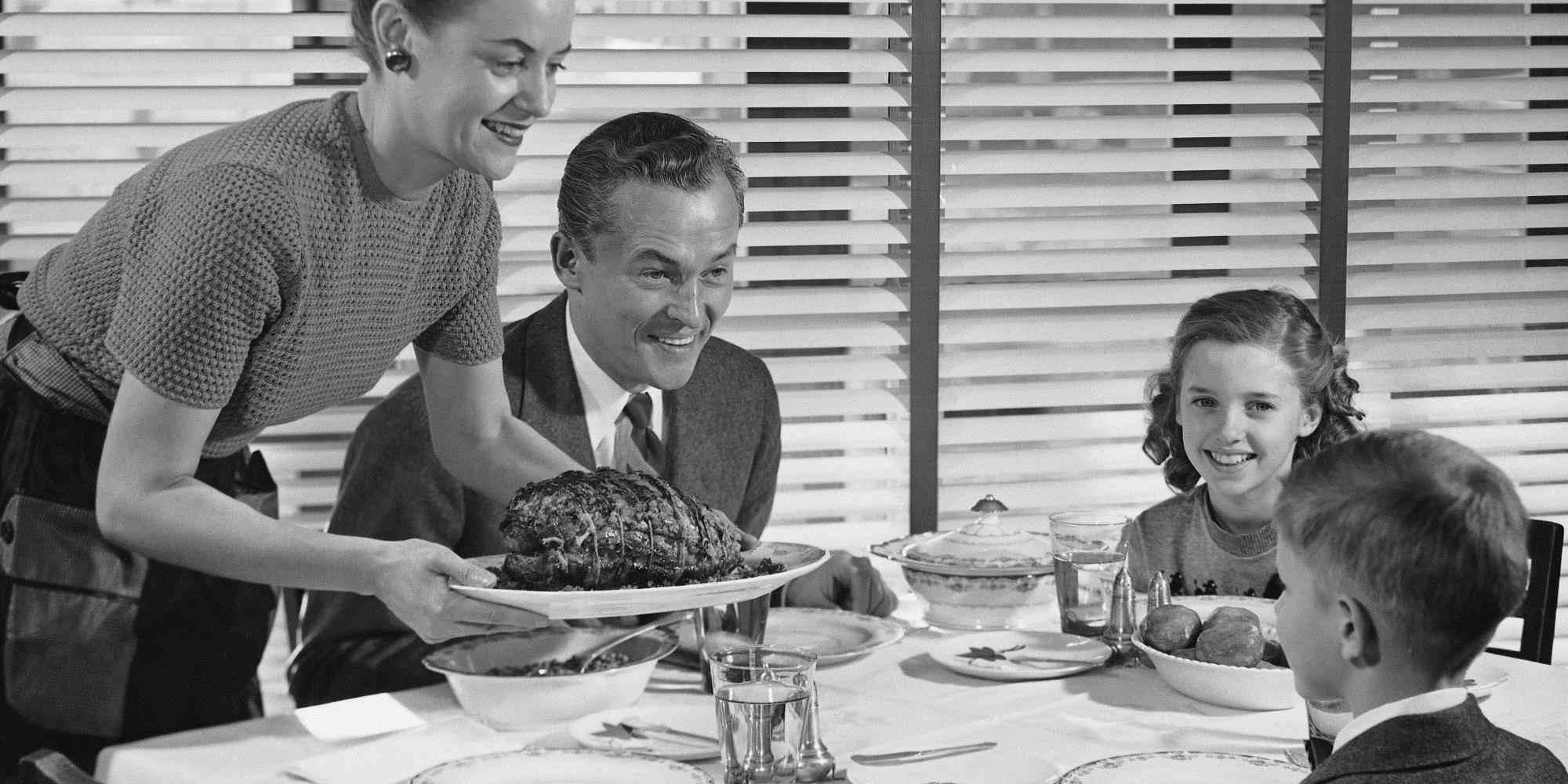"I find solace in knowing that everyone is living their own journey, from foster care or not. No family is perfect, even those that appear to be."
It's been a difficult few weeks.
I was walking down the street in the rain a few weeks ago when I got a call from my mother. She told me my dad was in the hospital. That phone call was the first of many conversations that took place over the course of a few weeks about my father and experiences from my childhood that I'd rather forget. I felt myself going into crisis mode, a state of being that I've become very familiar with over the years. I was hardly sleeping, and my responsibilities between work, my internship, school, and graduation piled up. My immune system dwindled, and I spent a weekend in the hospital after falling ill. It's been a difficult few weeks.
I am feeling better now and have begun to catch up on my long to do list. My dad is okay, and things are seemingly back to normal with my parents. When I talk about having been in foster care, a lot of people wonder if I still have a relationship with my parents. I do, but sometimes it feels strained. I talk to my mom once or twice a month and I talk to my dad a couple times a year. They are still together. I see them around the holiday times and occasionally meet my mom for lunch or coffee.
Some folks are surprised by this. They wonder how I can still think so positively of my parents, even after being in foster care. I don't always have positive thoughts, and I definitely feel sad, angry, and empty sometimes. But there's one thought that never changes: I think my parents are both wonderful people. Mind you, I don’t always think their choices are or have been wonderful. There are reasons why I was placed in care and experiences I had with my parents that haunt me, but I still think they're good people. Everyone makes mistakes and some have greater consequences than others. My parents aren't perfect, but no one is. They're still good people. My mom and I have the exact same sense of humor. When I see her, we laugh and laugh and laugh. She has a very warm personality and lights up a room. My dad is a very talented musician. He loves to be outside and has a great, hearty laugh. I have a lot of really great memories with my parents. Sometimes the bad memories stand out more than the good ones, but they still exist. Most people think that youth from foster care having nothing but negative memories, and that's not always true. Frankly, it would be easier if it were.
Just as every person's experience in foster care is different, I'm sure every individual's relationship with and feelings toward their parents is different as well. I think that's important to remember. Some folks don't have a relationship with their parents at all, while others may have a very positive one. Some students who experienced foster care may resonate with my every word, while others may disagree completely. We've all had different experiences. What is perhaps more common is the belief that after turning 18 and leaving foster care, we will be able to put all the thoughts, feelings, and memories of our lives during and prior to foster care behind us. I've since realized that belief is not accurate. Those emotions and memories can come up instantly, like they did for me last night when my boyfriend started humming a tune my dad used to play on the piano all the time when I was a kid. I hadn't heard it since, and I was instantly reminded of that time in my life. I used to frequently ask for advice on how to stop this from happening, how to erase those portions of my past that I don't want to remember. But that isn't possible. It is possible, however, to plan for those times to come and to deal with them as they do. Talking to a mentor or seeing a counselor can help plan for those moments.
Navigating my relationship with my biological family has been my most difficult struggle throughout college. I'll never forget walking to my very first class my freshman year, extremely nervous and conscious of every step, hoping I looked like a real "college kid." My cell phone rang, and I thought it was my aunt calling to wish me good luck on my very first day. However, she was calling to share about a really unfortunate experience that occurred with my parents the night before. I spent the whole class wondering if they were okay, and trying to figure out what I could do to help. Whether I looked like a real "college kid" or not, I didn't feel like one.
Someone once asked me if it felt good to abandon the "foster care" identity when I aged out at 18. I wish it was that simple. I no longer identify as a "foster kid", but many of the challenges carry over even after turning 18, and are constantly evolving. The times you want the help of your family are different at age 11, 16, 21, and 28. I'm approaching the scary age now where my friends are relying on their parents to help them buy a car, to help pay for their wedding, and to babysit their children. I don't know if my parents will play that role in my life, and I frequently wonder who will walk me down the aisle if anyone is ever crazy enough to marry me. There are still challenges after you age out of the system. It's a journey.
There have been some realizations and steps that have helped me along this journey:
- I find solace in knowing that everyone is living their own journey, from foster care or not. No family is perfect, even those that appear to be.

- Connecting myself with positive, supportive people has been vital in my journey. Most of these connections have been through school or academic support programs, such as through my internship and scholarship program.
- My social work background has been very helpful in identifying irrational thoughts and unhealthy patterns. I would imagine that for many students in my situation, some sort of counseling or professional support would be very beneficial to help sort through difficult emotions that arise related to one’s biological family. Journaling can also be a good way to help reflect on these thoughts.
- A mentor and personal hero of mine named Tina once told me that "parents have an obligation to their children, but children do not have an obligation to their parents." Hearing this philosophy from someone who is a parent helped me let go of my guilt for feeling like a "bad daughter" if I do not see or talk to my parents. I ultimately have control over my interactions with my parents. When that guilt does come up, I sometimes think of friends' parents or friends that I have who are also parents and how they interact with their children. The parents I admire most would completely respect that their child may find a situation very emotionally difficult, and would most likely discourage their child from doing something that would be unhealthy for them.
- Removing the position of control and authority that my parents once had over me has been very helpful. My parents do not in any way affect my success. They do not provide any financial support and I do not "owe" them anything. I cannot be disciplined by them, nor can any of my privileges be taken away. Within the same line of thought, it has been helpful for me to choose what I share with my parents. My mom is my primary source of contact; I rarely speak to my father. It is helpful for me to keep some parts of my life secret from her. This prevents them from having a negative impact on my successes.
- I stopped hoping that my parents will change. For a long time, I held on to fantasies that one day my parents and I would somehow reconcile our painful past and start doing the things I witnessed my friends doing with their families, such as taking vacations together and hosting birthday celebrations. I finally let go of those dreams by focusing on the reality of our family dynamic. I now base my decisions around that reality. Instead of agreeing to see my parents with hopes and dreams that we'll sit around a campfire and sing songs together in harmony, I agree to see them only if I feel prepared to handle the reality of what will most likely happen (which includes feelings of awkwardness and potential sadness). I dismissed my expectations for our relationship, which ultimately dismissed most of the disappointment. I'm not in any way saying that I've lost hope that they can change, but I've stopped hoping that they will. I realized that if I'm going to love them, I'm going to have to love them where they're at.
- I've also realized that there is no connection between who I am and the actions of my parents. No matter how hard I study, how good my grades are, how much I volunteer, or how many good choices I make, the reasons why I entered foster care in the first place do not change. This has been a life-long realization, but a rewarding one. It helps me dismiss the irrational thoughts that sometimes seep into my consciousness, such as "if only I was a better person, I wouldn't have ended up in the system."
- I try to think about the "big picture." There were certainly some rough years and difficult experiences, but I wouldn't change a thing. I love my life now, and I love where I'm at. If I was able to live the last 23 years over again, I'm not sure if I would have lived them differently. I love who I am (95% of the time). If the past 23 years had to go how they went to bring me here, so be it. Going through the hard times is the only path I know to take that will bring me to where I am today. I wouldn't have it any other way. It's still hard sometimes, but like I've said before: I can get through hard things.
Finally, I find comfort in loving my parents, even from afar. The truth is, I'm made up of half of them. So many of the qualities I love within myself exist because of who they are. My love for being outside with the sun shining on my shoulders, for example, is from my dad. My green eyes and freckles are from my mom. And my smile, which is probably my favorite quality, is something that I'd like to think is from both of them. I'm smiling just thinking about it.
